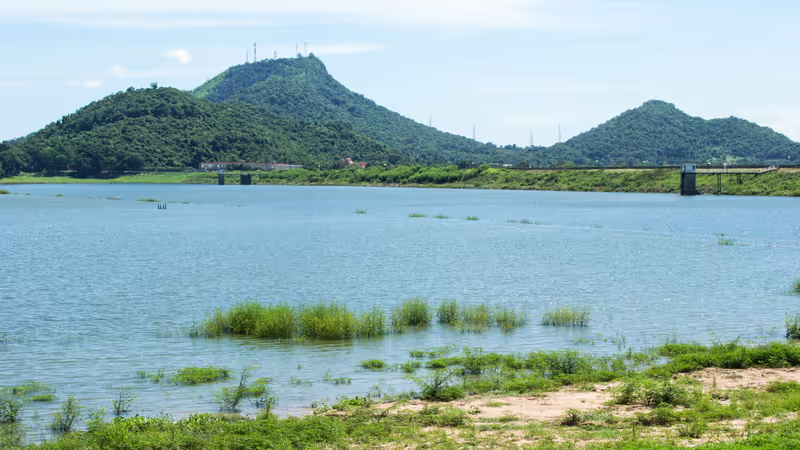| Student: | C.K. Omondi (Calisto Kennedy) |
|---|---|
| Timeline: | September 2017 - 31 August 2021 |
| Sources of funding: | NUFFIC |
Rainfall within the tropics is highly variable and yet the most critical input variable, as the immediate source of soil moisture, for applications like crop growth modeling. Limited availability of good quality data on rainfall time series at appropriate geospatial details, due to poor spatial distribution and non-existence of rain gauge networks, is a concern in many catchments. Fortunately, satellite-based rainfall techniques are viable alternative sources providing spatially and temporally continuous rainfall estimates at large spatial coverage. Rainfall products, however, exhibit systematic and random errors with their accuracies when compared to gauge estimates often not impressive. These errors propagate in biomass estimation when products are directly used. This becomes critical when the uncertain simulated output is meant for decision support, e.g., monitoring crop growth status and addressing issues on stable crop production for food security. So, their relevance for crop growth modeling requires evaluation (i.e., quantifying the magnitude of errors in the products and assessing their potential propagation across different crop growth stages).
The systematic difference in the products can be partially adjusted through bias correction to improve their reliability but what impact applied correction technique pose on biomass predictions and offsetting errors in crop growth modeling is unknown. Although few studies in recent years tested possible use of the satellite rainfall products in crop growth models, research in this field is elementary with little attention on how errors in the rainfall products propagate to cause that crop growth model results (biomass and/or yield) are uncertain. For studies assessing uncertainty due to utilizing rainfall products as inputs in crop growth models, their evaluations are more focused on an entire crop cycle as a lumped unit and, thus, only compare reference yield data (e.g., from field experiments, surveys among farmers or yield archives) to that model maturation yield output. Moreover, single site-simulations, where point-growth outputs are subsequently rescaled to represent entire study domain, is predominant among these assessments. Additionally, the idea on the use of ensemble rainfall products in hydrological models is not new, but for crop growth models it is, at least this to the best knowledge of the author. It is against this backdrop that this research focuses on a multisite evaluation of the effect of error propagation in biomass estimates due to misrepresentation of rainfall estimates in crop growth models by satellite rainfall products.
In contributing to this elementary research field, this research therefore assess the accuracy of satellite rainfall products (e.g., Climate prediction center Morphing technique (CMORPH), Tropical Rainfall Measuring Mission Multi-Satellite Precipitation Analysis – 3B42v7 (TMPA), Climate Hazards group Infrared Precipitation with Stations (CHIRPS), and Famine Early Warning System Rainfall Estimation Algorithm version 2 (RFE2), among others) with respect to their application on crop growth stage modeling. It evaluates uncertainty in biomass estimation as subject to error in satellite-based rainfall representations in crop growth models, i.e., based on uncorrected, bias-corrected and ensembles estimates. In principle, insights on where and when satellite rainfall products could fail in crop growth modeling could be identified as schematized in Figure 1 and, thus, critical for model calibration when products are used. A multisite based model calibration approach is proposed in estimating crop biomass across different growth stages.

Figure 1: Schematic drawing showing the possible propagation of SREs errors in biomass estimates by CGSM, and effect when crop growth stage modeling is adopted





